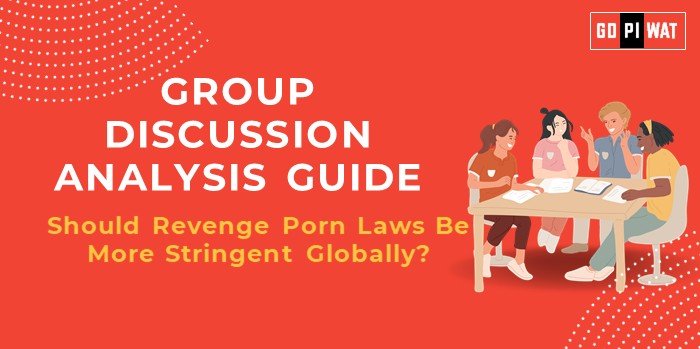📋 Group Discussion Analysis Guide: Should Revenge Porn Laws Be More Stringent Globally?
🌐 Introduction to the Topic
- 💬 Opening Context: “The rise of digital platforms has provided immense connectivity but also created avenues for harmful practices like revenge porn, which affects millions globally.”
- 📜 Topic Background: Revenge porn involves the unauthorized distribution of intimate content, often causing severe psychological trauma. Despite its prevalence, many nations lack robust legal frameworks to address it. Recent high-profile cases highlight the urgency of stronger global legislation.
📊 Quick Facts and Key Statistics
- 🌍 Global Impact: 1 in 12 social media users worldwide has experienced non-consensual image sharing (2023, Pew Research Center).
- ⚖️ Legal Protections: Only 46 countries have specific laws against revenge porn (UN Women Report, 2023).
- 🧠 Trauma: 70% of victims report severe anxiety and depression post-incident (WHO, 2022).
- 📉 Prosecution Rates: Conviction rates for revenge porn cases are under 20% globally due to weak legal frameworks (Amnesty International, 2023).
🔍 Stakeholders and Their Roles
- 🏛️ Governments: Drafting and enforcing stringent laws, providing victim support.
- 💻 Social Media Platforms: Implementing content moderation and reporting mechanisms.
- 🤝 Advocacy Groups: Raising awareness and supporting victims.
- 🎭 Victims: Advocating for justice and reform.
🏆 Achievements and Challenges
Achievements:
- ✔️ UK: Introduced the Revenge Porn Helpline, supporting over 15,000 victims since 2015.
- ✔️ South Korea: Mandatory imprisonment for offenders, with a 40% reduction in cases (2023).
Challenges:
- ⚠️ Weak international legal harmonization: Enables cross-border offenses.
- 🎭 Stigma: Limited reporting due to stigma and victim-blaming.
Global Comparisons:
- 🇦🇺 Australia: Enforced stringent laws with penalties of up to 7 years.
- 🇺🇸 US: Varied state laws create inconsistency in protections.
Case Studies:
- 🇮🇳 India: Increased cases reported during the pandemic; limited legal provisions often lead to prolonged trials.
🎯 Structured Arguments for Discussion
- ✅ Supporting Stance: “Stronger revenge porn laws ensure justice for victims, deter offenders, and promote safer digital environments.”
- ⚖️ Opposing Stance: “Overly stringent laws could lead to misuse, affecting freedom of expression and digital privacy.”
- 🤝 Balanced Perspective: “While stringent laws are crucial, their implementation must ensure fair trials and safeguard against misuse.”
🗣️ Effective Discussion Approaches
- 📜 Opening Approaches:
- “Revenge porn disproportionately affects marginalized communities, making stringent laws an urgent necessity.”
- “Can the digital age coexist with robust personal data protections?”
- 🔄 Counter-Argument Handling:
- “While misuse is a concern, data from countries with stringent laws shows minimal instances of misuse.”
- “Freedom of expression doesn’t equate to violating personal privacy.”
📈 Strategic Analysis of Strengths and Weaknesses
- 💪 Strengths: Empowers victims and deters potential offenders.
- 🔧 Weaknesses: Implementation challenges and potential misuse concerns.
- 🌟 Opportunities: Leverage technological advancements for tracking offenders.
- ⚠️ Threats: Cross-border jurisdiction issues and enforcement gaps.
💼 Connecting with B-School Applications
Real-World Applications: Discussions on policy framing, corporate responsibility in digital platforms.
Sample Interview Questions:
- 💡 “What role should businesses play in addressing revenge porn?”
- 💡 “How can global cooperation improve cyber law effectiveness?”
Insights for Students:
- Focus on tech-driven solutions.
- Advocate for ethical practices in data protection.


